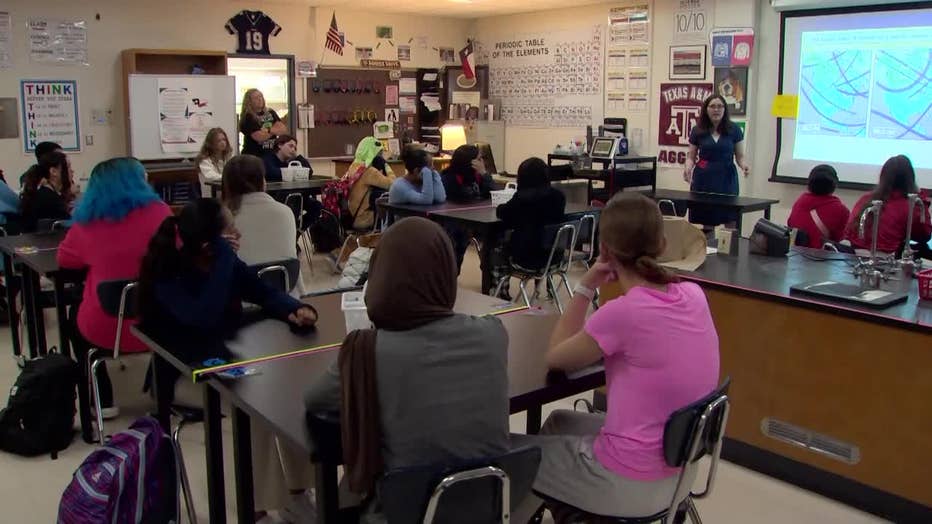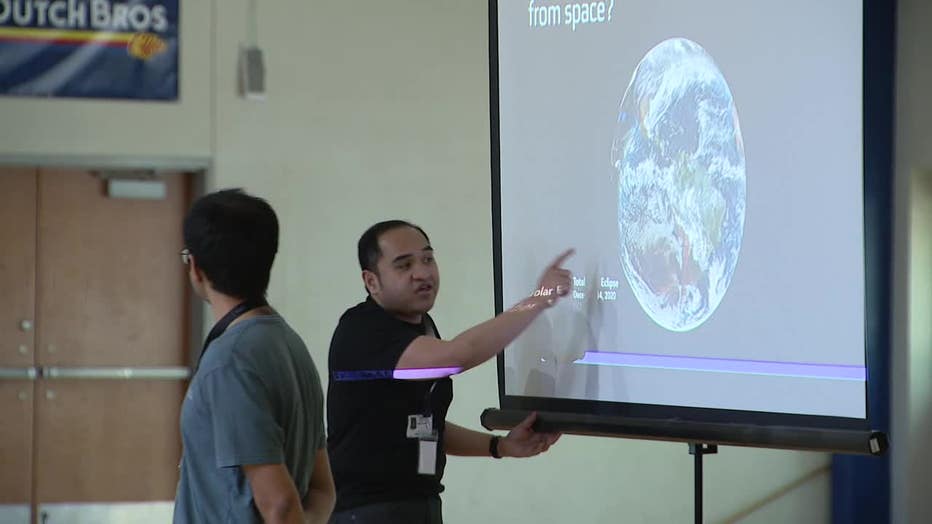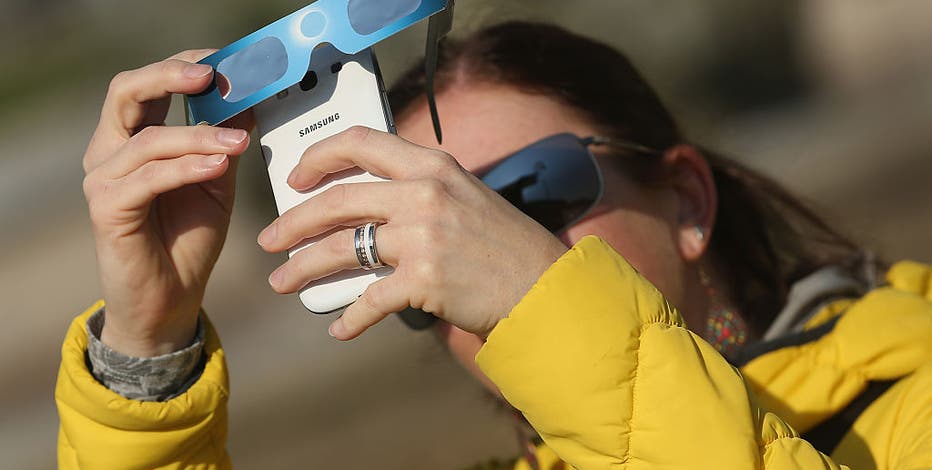Solar Eclipse: NASA educators, scientists teach North Texas students what to expect
The April 8th total solar eclipse has been a great way to motivate students to learn more about astronomy and science as a whole.
At many North Texas schools, lesson plans on Friday centered around Monday's eclipse.
Schultz Elementary School, in Denton ISD, got to learn about the eclipse from seven NASA educators and scientists.
"Educating the public, especially young people, especially when there is something going right over their heads," said Lani Sasser, a heat and data information specialist for NASA. "We talked about how they can predict the corona, which is the outermost layer of the atmosphere of the sun. So in an eclipse, especially a total eclipse we can see that feature happening."
READ MORE: Where to find free solar eclipse glasses before April 8
It was a similar experience at Shackelford Junior High in Arlington ISD.

There, Kathryn Wilbanks, an AISD grad who is now a doctoral student at the University of Michigan's Climate and Sciences and Engineering Department, talked about her plans to students.
"I'm hoping I'll really spark some creative ideas about what science can do and what we can learn from big scientific events like this," said WIlbanks.

At Uplift Williams Preparatory in Dallas, eighth graders took part in an interactive talk with astronomers from the Carnegie Institute.
"I'm also hyped up about the eclipse. I can't wait. It's a once in a lifetime experience," said eighth grader Geovanny Nolasco.
The last few months have been a whirlwind for their science teacher.
"Excited, slightly stressed. I've ben planning this since late January for this day and today also. On top of that, having all of the excitement of the kids, it's been hard to manage in a good way," said eighth grade teacher Felipe Monroy.
READ MORE: Why you should bring a colander to watch the solar eclipse
All of this classroom learning will culminate with the actual event – the total eclipse.
Many students will get to watch the event from school with glasses provided free of charge.


